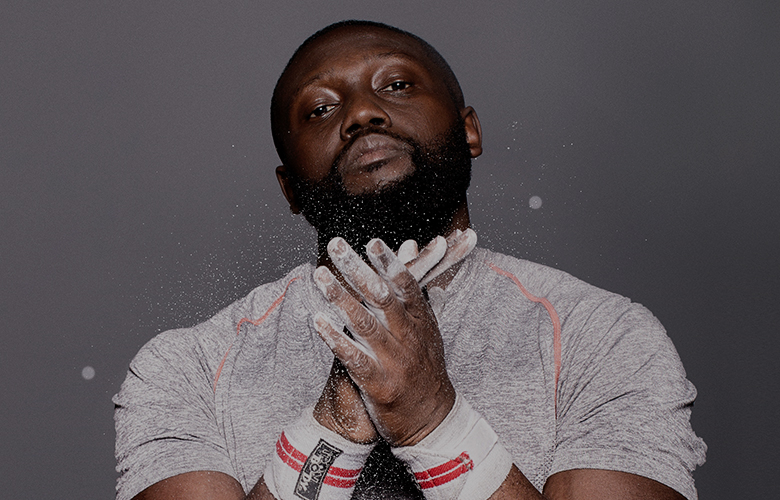
Here are some tips on Nutrition, Mental Toughness and Recovery by some friends of mine who are medical professionals. I have also included some tips from myself. These were originally made for college gymnasts but applies to all who use their body as their career.
1. Stay hydrated. Do not wait until thirsty to drink. Dehydration can increase risk of injury and fatigue. When temperatures are over 85 degrees consider adding electrolytes to water. If consuming alcohol remember you must rehydrate afterwards.
2. Eat protein. Eating protein on the morning of competition will help maintain energy and blood glucose levels. 10-20g is an adequate amount of pre competition protein.
3. Beware of highly processed foods (instant meals, snacks, etc.). These foods are often high in excess sodium and sugar and void of necessary nutrients found in a less processed diet. To create a balanced meal aim to add a fruit/vegetable, a protein source and a complex carbohydrate.
4. Always have healthy on the go options (check labels to make sure they are less than 350mg sodium per serving, provide at least 5g protein and has less than 12g sugars per serving). Good examples are healthy protein bars, packets of unsalted nuts or nut butters, seeds.
5. Avoid periods of fasting (more than 5 awake hours without eating) during heavy training or competition. Fasting can cause you to have low energy levels, abnormal fluctuations to blood sugar and blood pressure or weakness. Always carry a food or snack in your gym bag for quick access to food
6. Avoid excess sugar, especially processed sugar and syrups. Excess sugars are foods with >20g per serving and usually contain syrup or sugar that does not naturally exist in that food source.

1. Read and Learn. You must be accountable to learn about how to take care of yourself, and not depend on other people to do all the work for you. Read books, listen to podcasts, talk with professionals and build habits off of the best available scientific evidence and expert coaching opinion. Anything you can learn about nutrition, hydration, soft tissue care, mental health, and global recovery between training sessions.
2. Sleep at least 7 hours per night, ideally 8-9. As recommended by Matthew Walker try to shut down electronics 30-60 minutes prior to bed (reading school work instead of computer). Also aim for dark lit rooms, trying to keep the temperature cooler, and avoiding alcohol or caffeine past 3pm.
3. Make your soft tissue care and Pre-Hab routines like clockwork. Show up to the gym every day 10 minutes early to journal on heart rate, soreness, fatigue, and tracking sleep. Do head to toe soft tissue care every day, address specific issues, and 2x/week do a 15 – 20 minute pre-hab circuit. Also proactively work with medical professionals, be honest and speak up about the start of injuries before it snowballs into much larger issues.
4. Work with nutrition professionals to find the optimal amount of food and water you need to maintain performance. Everyone is different and has different resources. Learn what they say, and change 1 thing per day to enhance your performance and health.
5. Plan, time manage, and be disciplined on your priority. You’re going to have to make sacrifices if you want to stay healthy and perform optimally. It’s not about not enjoying your life, but about setting boundaries and trying to moderate the amount of time spent working to recovering.
6. Somehow, find time in your schedule for “you” time. Whether that is journaling, meditating, watching your favorite show a few times per week, listening to music, hanging out with friends, reading, or whatever else you enjoy. You need time to take your mind away from training, which in turn allows your body to shift into a recovery state and help remodel itself.

1. Remember to keep things in balance the best you can: academics, social, gymnastics, and self-care. When you’re in balance, your life flows more easily.
2. Keep your mind locked down on key words or rhythm during routines and lock down consistently every practice. Then, take your mental consistency into competition. Same thing in practice as in the meet.
3. Use your team! Be sure to allow your team to help you through challenges. If you need to change your mindset, allow your team to help you mix it up! Also, never hesitate to utilize the experience of your upper-upperclassmen and coaches.
4. Make practice like competition as much as possible. Imagine the judges, pressure situations, and even the crowd. The more practice is like competition, the more competition will be like practice.
5. Try not to obsess about line-ups, scores, or “having to hit!” When you focus too much on outcomes you tend to create anxiety. Focus your mind on things in your control like, going all out, performing your routines, and excellent technique.
6. Communicate, communicate, communicate with your coaches, trainers, and academic advisors. Let them know any difficulties you are experiencing mentally or physically. It’s important to let your voice be heard with any concerns you might have.
7. Eliminate excess drama from your life. Surround yourself with people who fuel you and feed you. Remember that it’s ok to say NO sometimes!
8. Put your self-care first. When you are stressed and exhausted everything is harder both in and out of the gym. Be sure you nurture yourself physically, mentally, emotionally, and spiritually.
9. Remember it’s “Just another routine”. You’ve been doing these routines and skills forever.
Lean on your training. You have a huge bank of progressions and repetitions! Give yourself credit for all the years you have trained these skills! Trust yourself!
10. Practice using good breathing and self-talk to get into your perfect mental state for practice and competition. Slow down your breathing, and remember the statements that have always worked for you.
11. Think about how your actions affect your team around you. Everything you do represents your team and school. Keep your legacy in good standing by only acting in ways that make your program respected in the university and community. It takes years to build a reputation and only one situation to ruin it.
12. Don’t forget the joy! College should be one of the most joyful times in your life. You are here for a reason so relish every moment! When you do your sport from a place of joy, you always perform better!

Does Coaching Style Increase Injury Risk In Performance?
Overcoming Failure: 3 Steps To Get Back On Track


Dave Tilley DPT, SCS, CSCS is a Physical Therapist who graduated in 2013 from Springfield College. Dave comes from an extensive gymnastics background, being a former athlete and currently still coaching optional level gymnastics in Boston. Dave was a competitive gymnast for 18 years, 4 of them collegiately as part of the Springfield College Men’s Team. Dave has also been coaching gymnastics for 12 years, being involved in beginner, national, and elite levels. His unique background as a former athlete and current coach gives him a one of a kind approach for the performance and rehabilitation of gymnasts. He has successfully treated some of the most talented high school, collegiate, and junior elite level gymnasts in the country. Along with gymnastics, Dave enjoys treating athletes of all sports as well as the specialized treatment of Olympic Weightlifters and CrossFit athletes. He has worked with regional and national level Olympic Weightlifters, as well as Regional and Games level CrossFit Athletes. Dave graduated from Springfield College with his Bachelors in Science, a Minor in Psychology, and Doctorate in Physical Therapy. He became Board Certified in Sports Physical Therapy in February of 2016, and became a Certified Strength and Conditioning Coach in 2017. His current interests include prevention and rehabilitation of extension based spine injuries, shoulder and hip instability, periodization and strength and conditioning models, as well as the science involved in long-term athletic development, mobility training, and motor control. He participates in ongoing continuing education by attending various courses, collaborating with other professionals, and staying up to date with the most current medical research. Along with treating in the clinic, Dave is also the CEO/Founder of “SHIFT Movement Science and Gymnastics Education”. This company was started in 2014 to help educate those involved in gymnastics, medical fields, Olympic weightlifting, CrossFit, and more about optimal performance and preventative rehabilitation strategies. By combining his roles as a healthcare provider, current coach, and athlete Dave looks to help remold the gymnastics world with current, scientifically backed principles that optimize a gymnast’s long-term potential. His new forward-thinking ideas have been nationally recognized with members of USA Gymnastics, being implemented into JO, Collegiate, and Elite level programs. Dave travels to speak both nationally and internationally at various events across the country including Make It Right Elite Gymnastics Camp, USAG Regional, and National Congress, Power Monkey Camp in Tennessee, and has consulted with many NCAA Division 1 Men’s and Women’s Gymnastics. Dave is very passionate about his work both in the clinic and gymnastics training arena. He aims to deliver the best possible care to the clients he sees and athletes he trains. He hopes to soon become more active in the role of conducting research studies related to gymnastics. Dave is the newest addition to the Champion Physical Therapy and Performance Team.
Read Full Profile© 2021 TheatreArtLife. All rights reserved.

Thank you so much for reading, but you have now reached your free article limit for this month.
Our contributors are currently writing more articles for you to enjoy.
To keep reading, all you have to do is become a subscriber and then you can read unlimited articles anytime.
Your investment will help us continue to ignite connections across the globe in live entertainment and build this community for industry professionals.